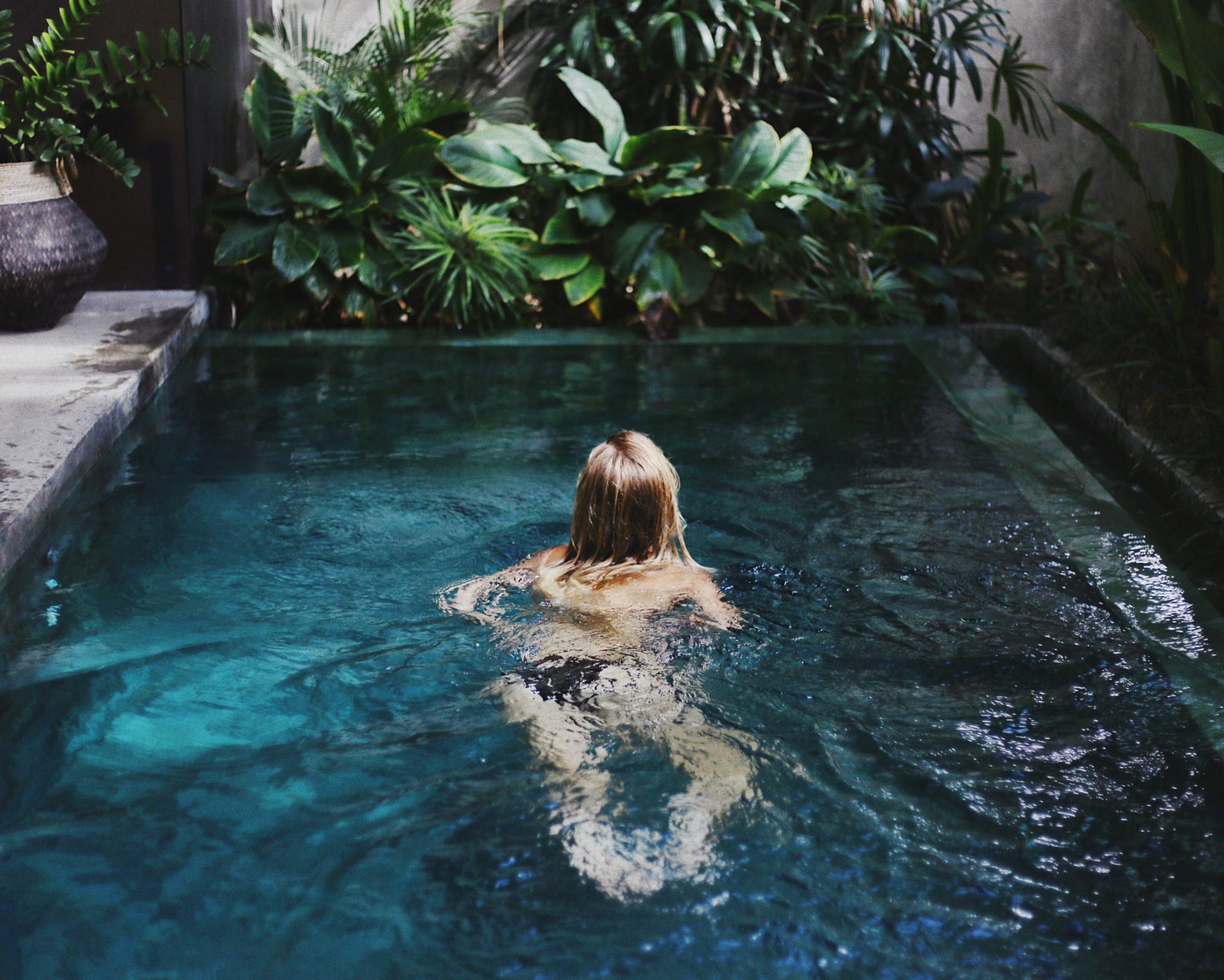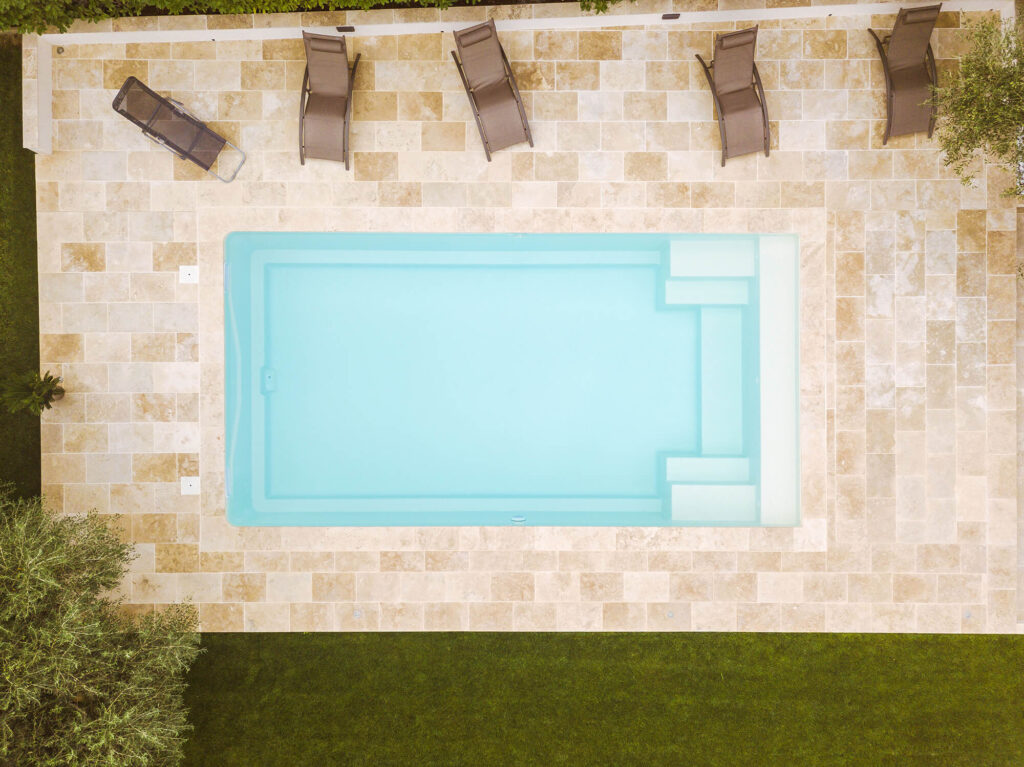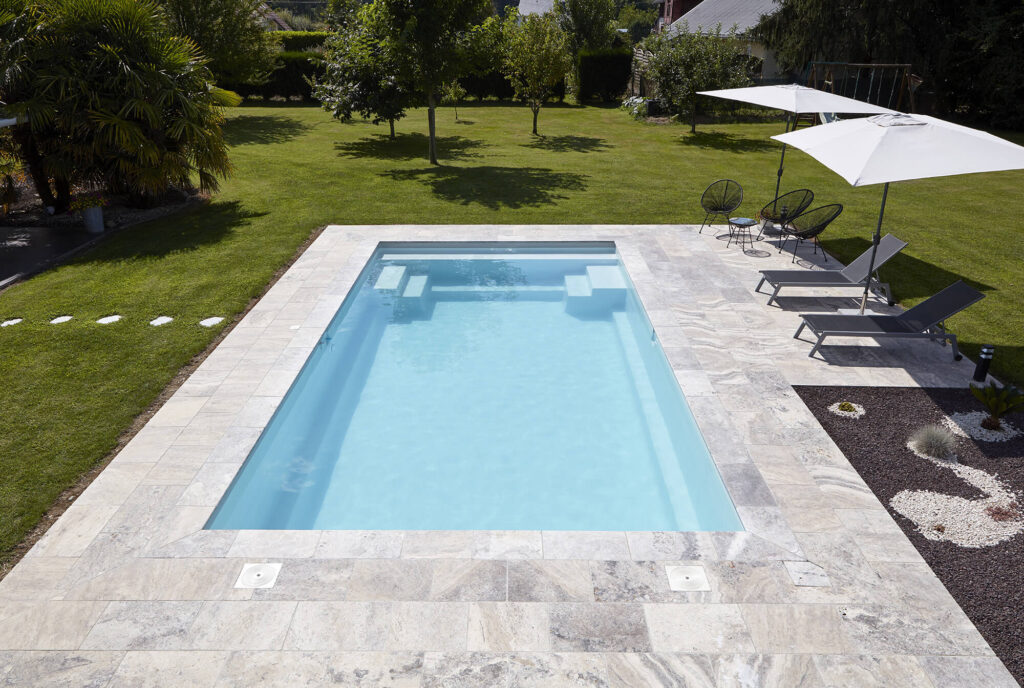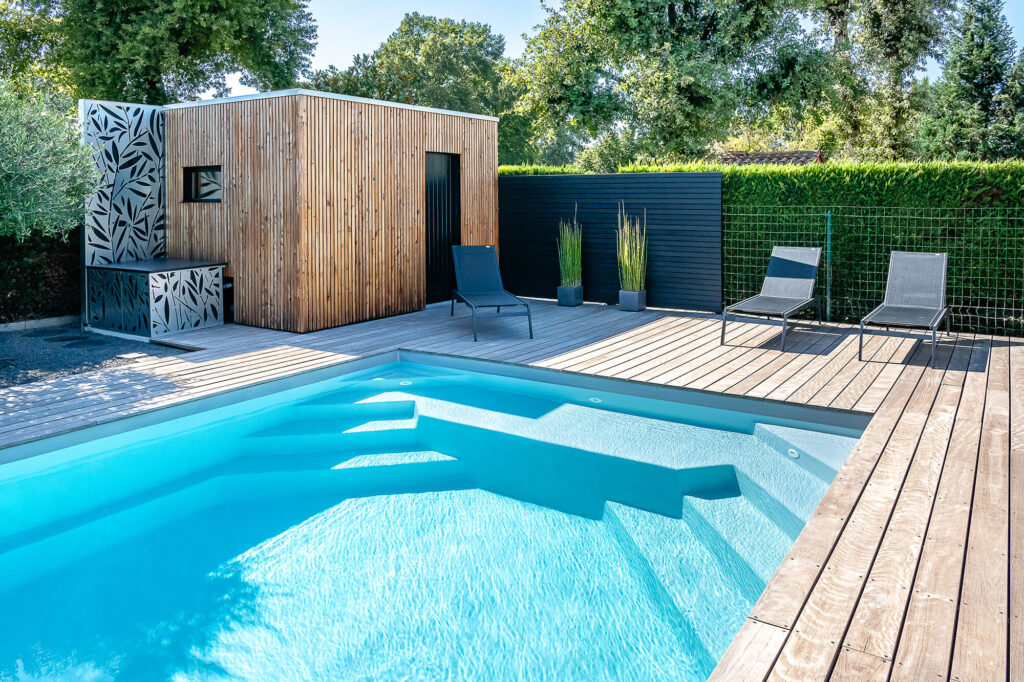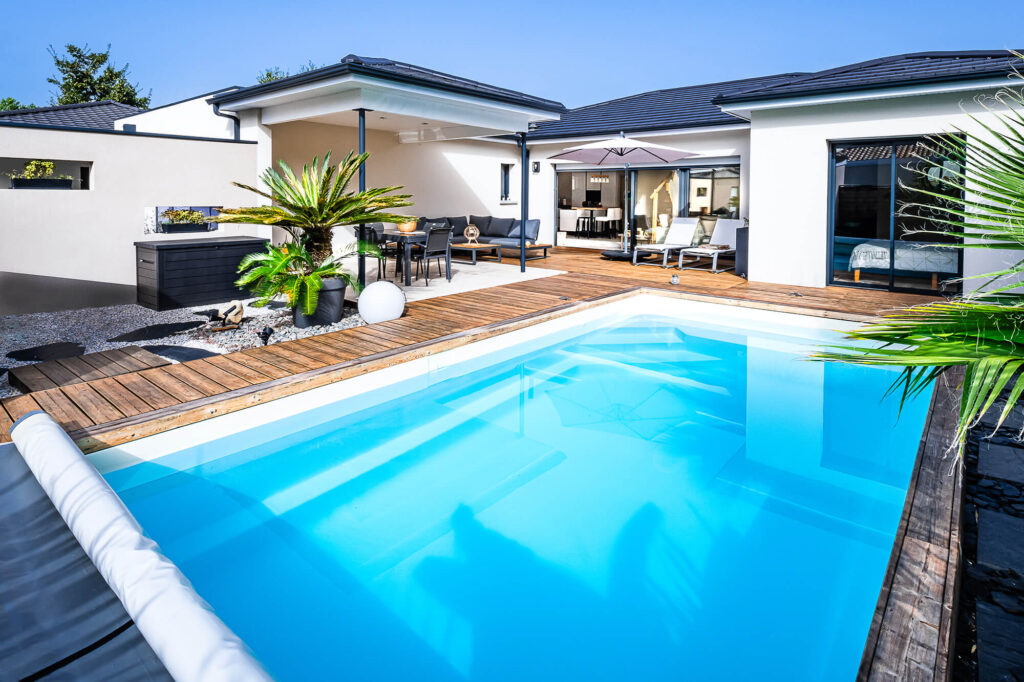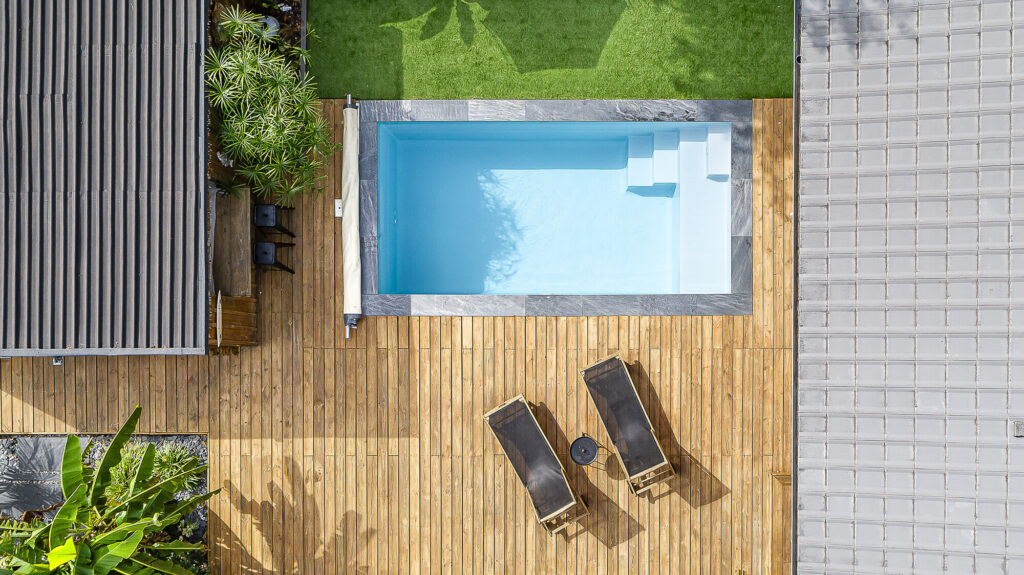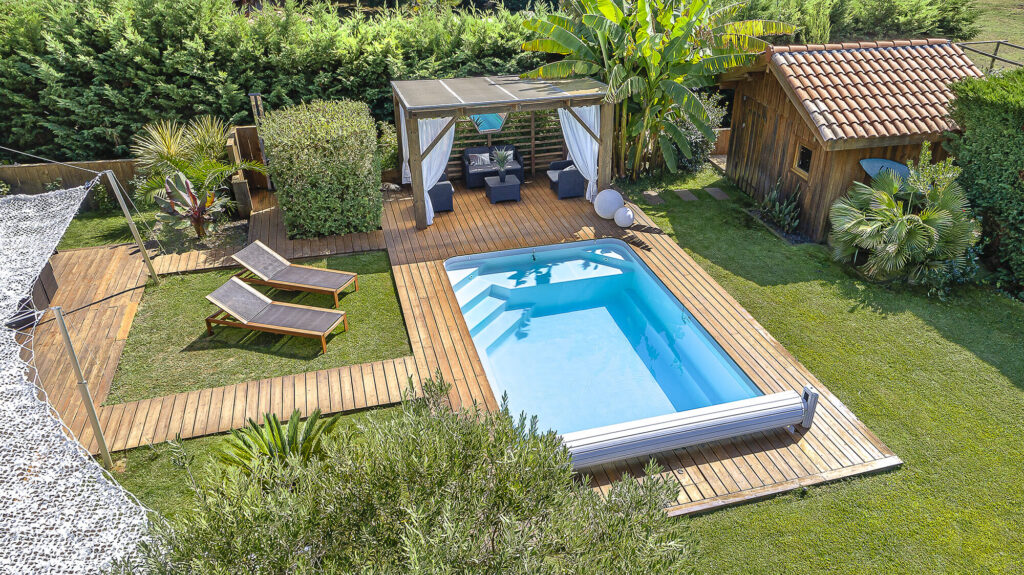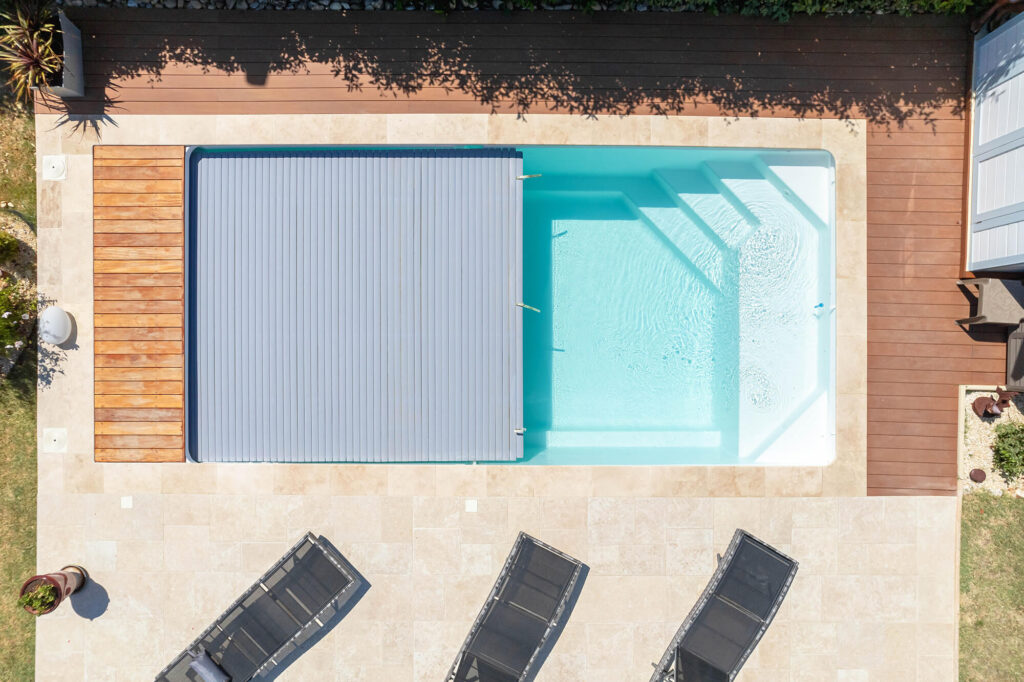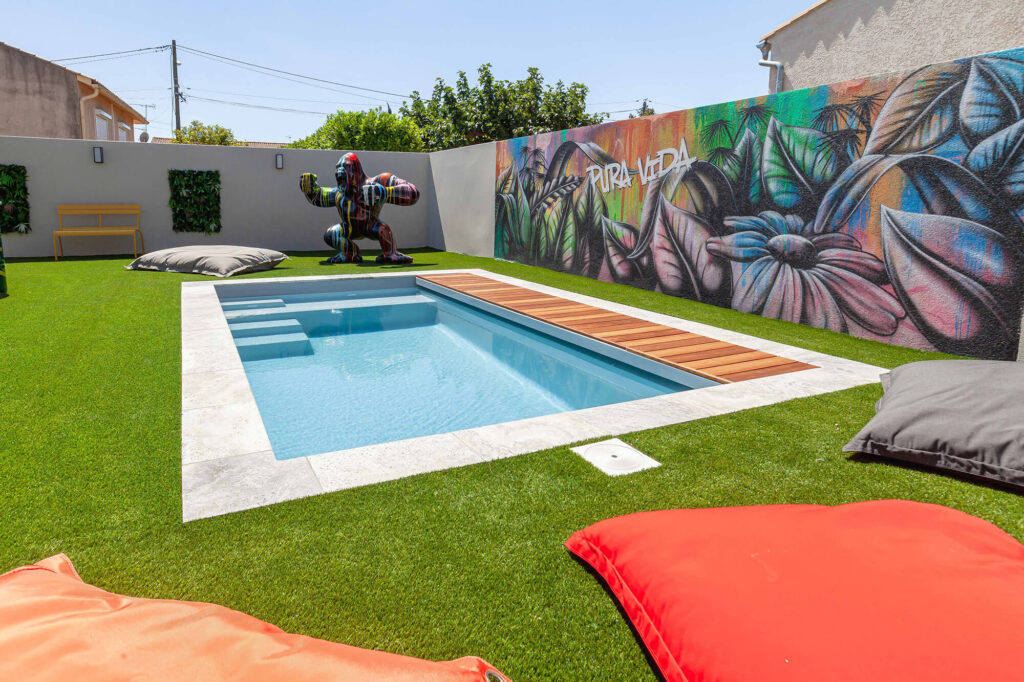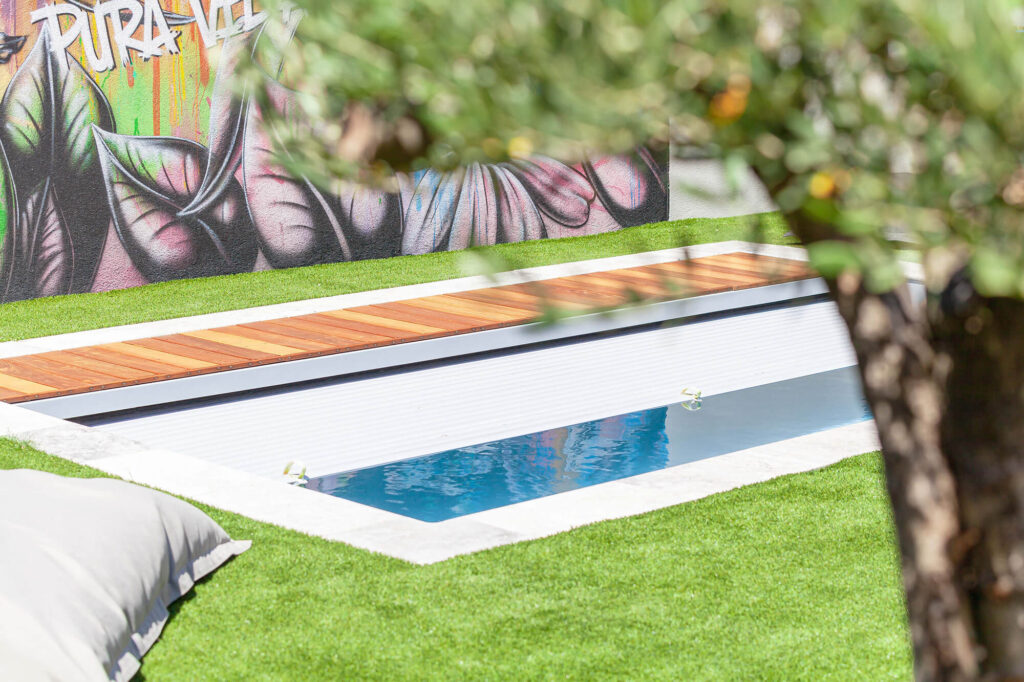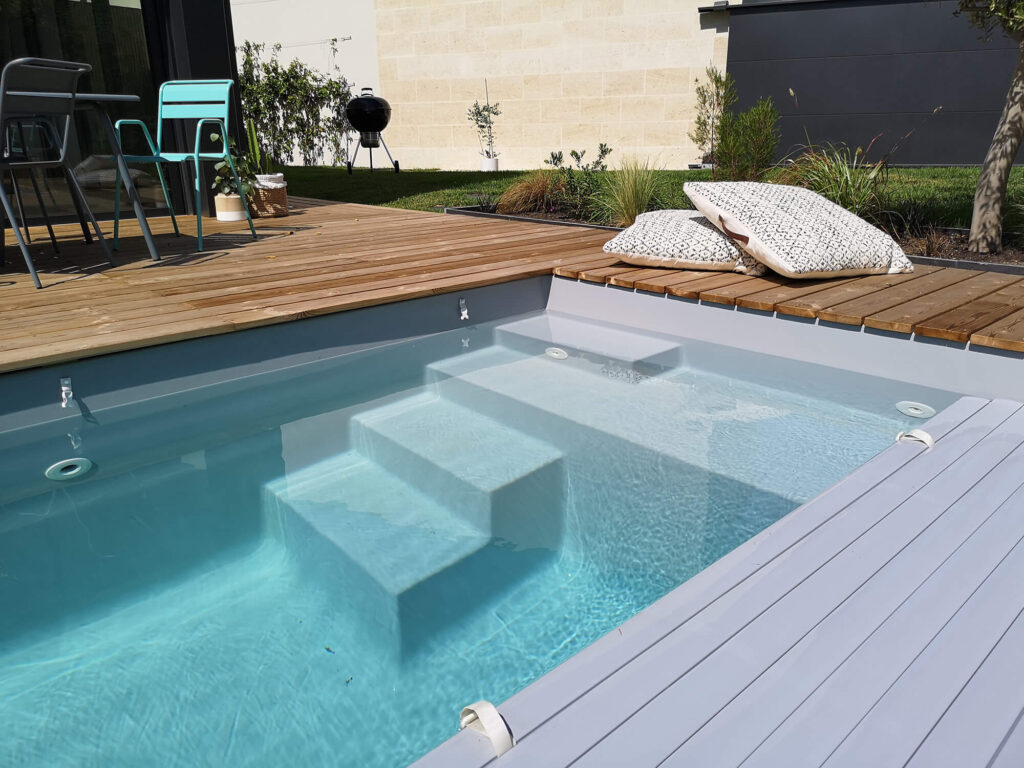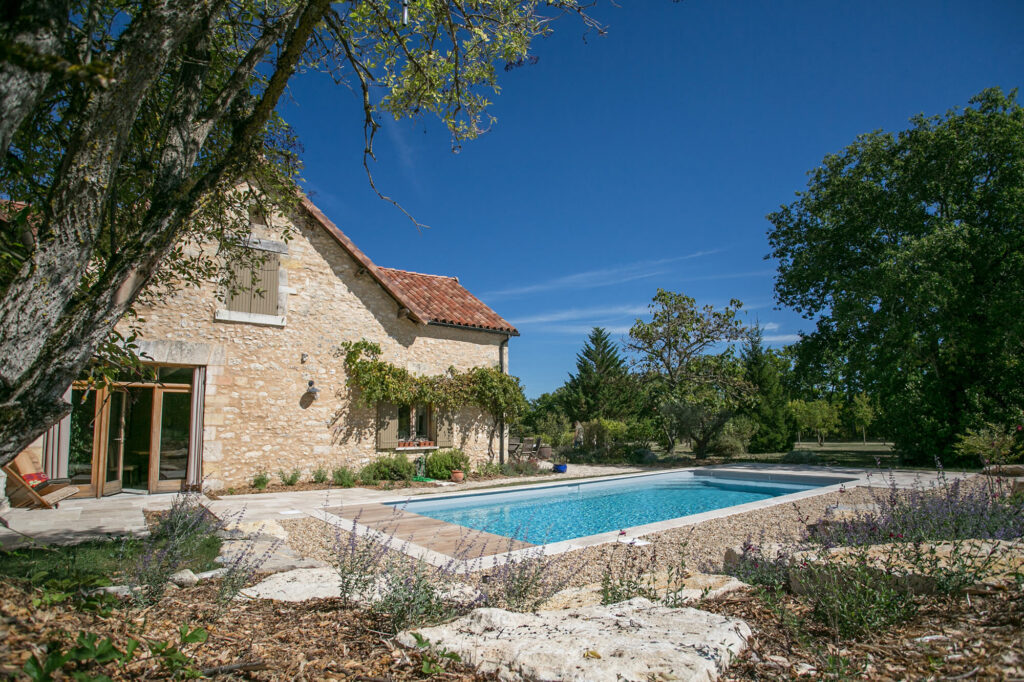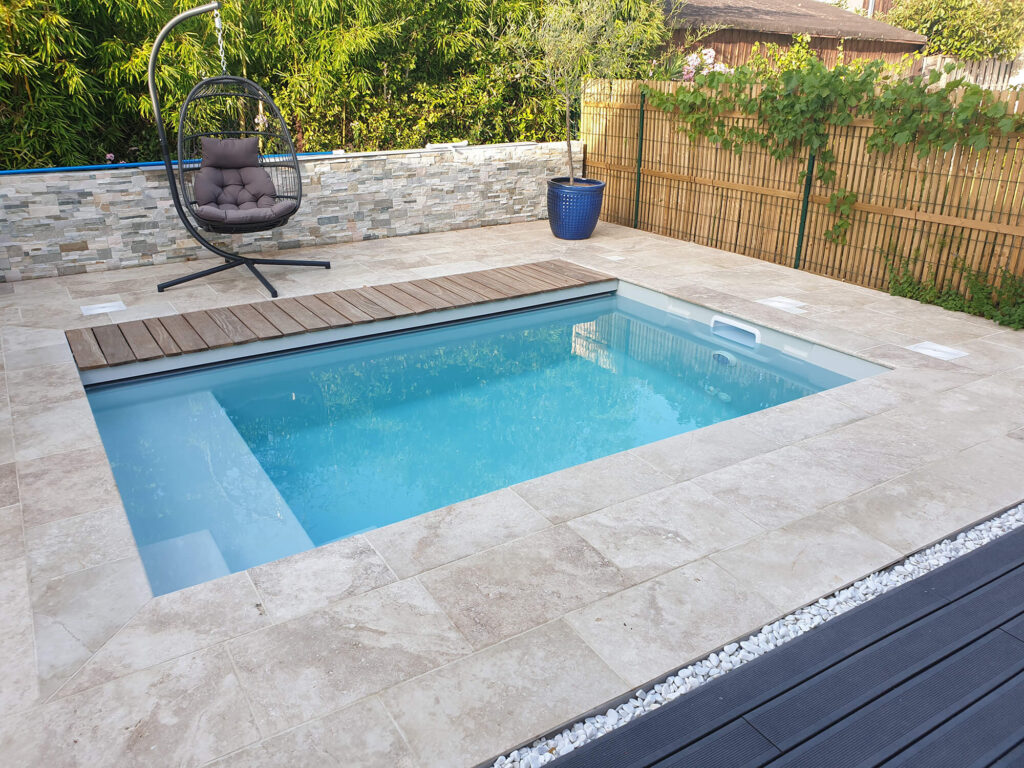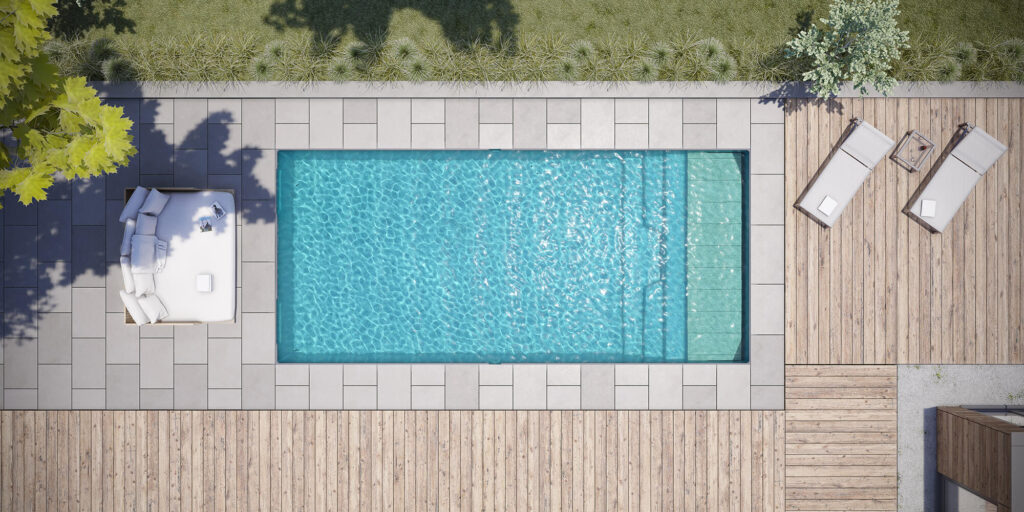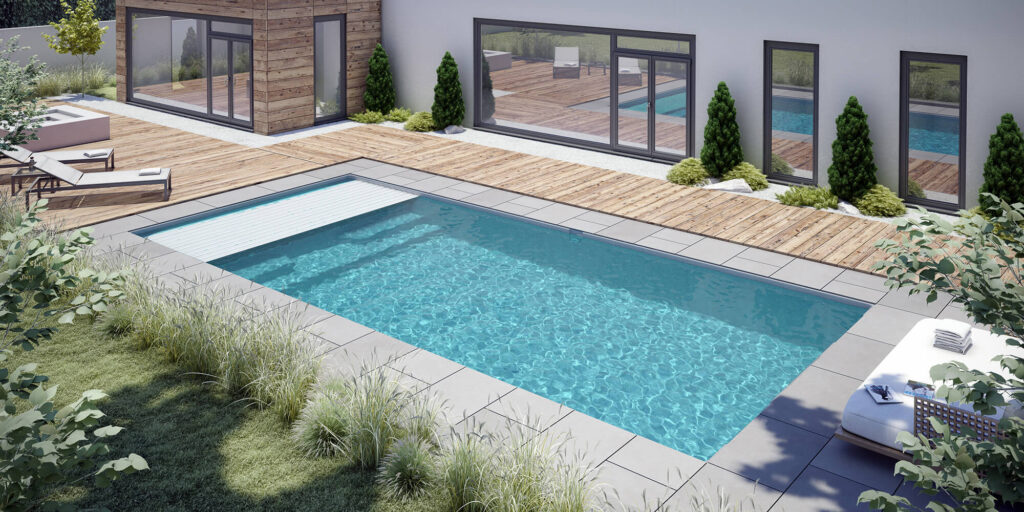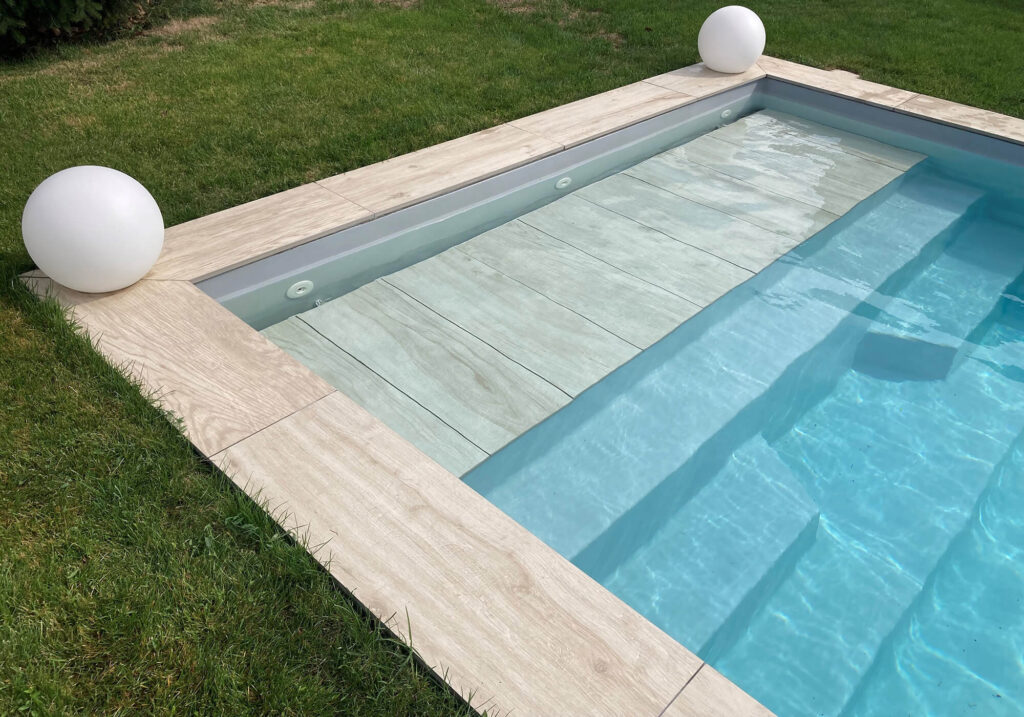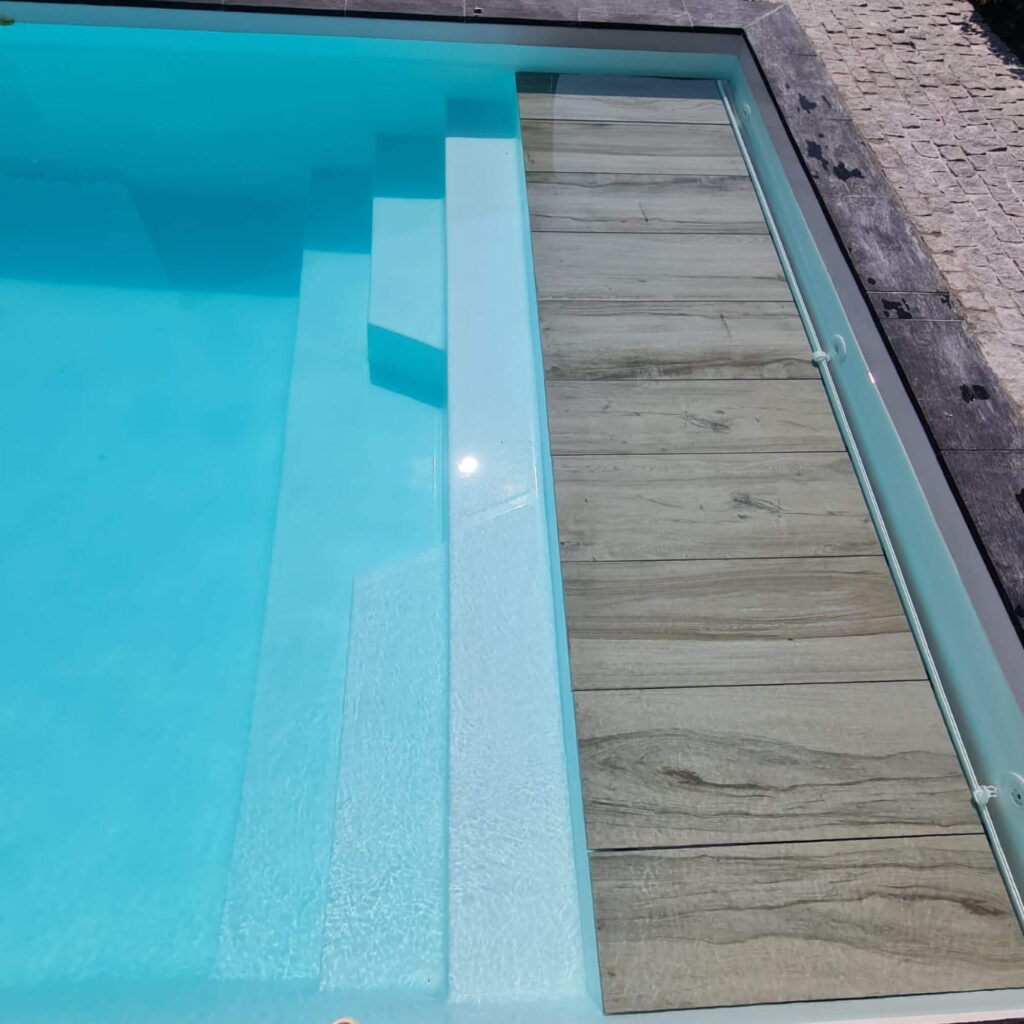More fashionable than ever, the natural swimming pool highlights all the beauty of nature. It is a natural swimming pool that uses the principle of lagooning. The principle is to pass the water by gravity flow into a succession of basins where the metabolism of organisms (bacteria, plants, etc.) ensures the decontamination of the water (phytoremediation) while substrate and plants take care of filtration.
In general, the natural pool is divided into 3 distinct zones; the first being the swimming area. The second is the so-called lagoon area, also called the purification zone, which acts as a water filter and where the plants are also placed. The third and final zone, the regeneration zone, is sometimes optional. It is generally a small decorative waterfall .
How does a biological swimming pool work?
The concept of the biological swimming pool is relatively simple. It is a traditional swimming pool, which aims to filter the water in a completely natural way. The ecological swimming pool has many considerable advantages in terms of aesthetic, ecological and natural aspects.
What are the advantages of a biological swimming pool?
The advantages of a biological swimming pool are numerous.
In first place, its ecological concept is particularly appreciated. The natural swimming pool completely prohibits harmful and chemical products such as chlorine, very present in the majority of swimming pools. This therefore makes the swimming pool healthier and more suitable for different types of skin. The non-use of chlorine or any other chemical treatment product avoids the inconveniences that the majority of people encounter when swimming in a pool that is not natural. These inconveniences are none other than irritations of the eyes, throat, nasal mucosa, respiratory tract or even skin. Furthermore, in certain extreme cases, chlorine can act as a trigger promoting asthma.
On the other hand, the biological pool allows you to stabilize your water consumption because it is not equipped with an industrial filtration system. In fact, it is the plants that play the role of water filtration regulator.
Finally, the maintenance costs for a biological swimming pool are often less expensive than those for a traditional swimming pool.
The disadvantages of a biological swimming pool?
Although the organic pool is more recommended in terms of health and design , this bathing comfort entails a certain cost. It is more expensive than a traditional pool given the need to set up 3 different zones and to set up a suitable process for natural oxygenation. In addition, it is recommended to maintain a temperature below 25 ° C in order to ensure the survival of the plants, an essential player in the proper functioning of a biological pool. In addition, any use of chemical products such as lotions or sun creams is strongly discouraged when swimming in a biological pool.
How to build a biological swimming pool?
Installing a biological pool may seem easy and feasible to build yourself. However, it is strongly recommended to contact a pool builder or a company that is an expert in the field. In addition, if you feel competent, take charge of the earthworks projects for the construction area. For everything related to the construction of the pool, the assortments of aquatic plants and the definition of the functioning of the ecosystem, call on a professional in biological pools .
Configure your pool online Back to all news